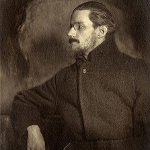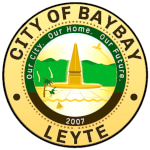Holidays Calendar for June 16, 2028
June 16 is Youth Day in South Africa. This is a public holiday, that commemorates the events of the Soweto Uprising, that took place on June 16, 1976.
Sussex Day is an annual holiday celebrating the rich heritage and culture of the English historic county of Sussex. It is observed on June 16 since it is the feast day of Saint Richard of Chichester, the patron saint of Sussex.
The Organization of the African Unity initiated annual celebration of International Day of African Child. This day is observed every year on June 16 since 1991.
World Sea Turtle Day is celebrated annually on June 16 to spread awareness about the endangered status of most sea turtle species caused by ocean pollution and oil spills, extensive tourism activity, global warming, fishing and poaching, disease, and other factors.
Waterfalls are among the most amazing natural sights in the world, so it is not surprising that there is a holiday celebrating them. International Waterfall Day is observed annually on June 16.
Maple Syrup Urine Disease Awareness Day, also known as MSUD Awareness Day, is observed annually on June 16. The observance was created to raise awareness of a rare genetic disorder that affects amino acid metabolism.
Engineer's Day is an Argentinian professional holiday, that is annually observed on June 16. This holiday celebrates the day, when Luis Augusto Huergo became the first engineer in Argentina.
The Irish annually celebrate Bloomsday (Lá Bloom, Bloom's Day) on June 16. This celebration commemorates life of Irish writer James Joyce and events of his novel Ulysses.
Baybay City Charter Day (Araw ng Pribilehiyo ng Lungsod ng Baybay) is a special working holiday in the Philippine city of Baybay celebrated annually on June 16. It commemorates the day when Baybay was officially granted city status.
Iligan City Charter Day (Araw ng Iligan) is a special non-working holiday celebrated on June 16 in the city of Iligan, Northern Mindanao, Philippines. It was established to commemorate the anniversary of Iligan becoming a city.
National Fudge Day is observed annually on June 16. Although some desserts can date back about 5,000 years, fudge is a relatively recent invention that originated in North America.
International Day of Family Remittances is a United Nations observance held on June 16. Its main goal is to recognize the financial contribution made by migrant workers to the sustainable development of their countries of origin.
This Day in History
- 2017 Died: Helmut Kohl, German politician who served as Chancellor of West Germany from 1982 to 1990 and Chancellor of Germany from 1990 to 1998.
- 2013 Died: Hans Hass, Austrian biologist and diver. He is known mainly for being among the first scientists to popularize coral reefs, stingrays and sharks.
- 2012 China successfully launched its Shenzhou 9 spacecraft, carrying three taikonauts. One of them was Liu Yang, the first female taikonaut.
- 2012 The United States Air Force's robotic Boeing X-37B spaceplane returned to Earth after a 469-day orbital mission. Most of the parameters of the mission were not disclosed by the Air Force.
- 2010 Bhutan instituted a total ban on tobacco and became the first country to do so. The Tobacco Control Act banned not only smoking, but also the cultivation, harvesting, production and sale of tobacco and its products.
- 1990 Born: John Newman, English singer, songwriter, musician, DJ, composer and record producer. He is best known for the track "Love Me Again" released in 2013.
- 1979 Died: Nicholas Ray, American actor, director, and screenwriter, whose best known work is Rebel Without a Cause. Among his other notable works are They Live by Night, Knock on Any Door, In a Lonely Place etc.
- 1978 Born: Daniel Brühl, German and Spanish actor. He is known for his roles in the films Inglourious Basterds, The Bourne Ultimatum, The Fifth Estate, Rush, and more.
- 1977 Died: Wernher von Braun, German-American engineer, one of the leading figures in the development of rocket technology in Germany and the USA, considered to be one of the fathers of rocket science.
- 1972 Born: John Cho, American actor known for his roles as Harold Lee in the Harold & Kumar films, and Hikaru Sulu in the Star Trek rebooted film series.
- 1971 Died: John Reith, 1st Baron Reith, Scottish broadcaster, best remembered as the first Director-General of the BBC.
- 1971 Born: Tupac Shakur, American rapper, producer, and actor, best known under his stage name 2Pac. He was one of the best-selling music artists of all time and one of the greatest rappers ever.
- 1970 Died: Sydney Chapman, English mathematician and geophysicist, whose work on the kinetic theory of gases, solar-terrestrial physics and the Earth' ozone layer led to a broad range of researches over many years.
- 1963 Soviet cosmonaut Valentina Tereshkova became the first woman in space. Her Vostok 6 mission lasted for 2 days, 22 hours and 50 minutes.
- 1958 Died: Imre Nagy, Hungarian politician, the 3rd Prime Minister of Hungary. He was executed on charge of treason.
- 1955 Born: Laurie Metcalf, American actress. Known for her complex and versatile roles across the stage and screen, she has received various accolades throughout her career spanning more than four decades
- 1955 Argentine Navy dropped several bombs upon an unarmed crowd demonstrating in favor of President Juan Perón in Buenos Aires. 364 people were killed and at least 800 injured.
- 1950 Born: Mithun Chakraborty, Indian actor, winner of three National Film Awards (India). He is best known for role as Jimmy in the film Disco Dancer.
- 1944 Died: Marc Bloch, French historian and academic, co-founder of the highly influential Annales School of French social history.
- 1930 Died: Elmer Ambrose Sperry, American inventor, most famous for co-inventing the gyrocompass with Herman Anschütz-Kaempfe.
- 1911 The International Business Machines Corporation (IBM) was founded as the Computing-Tabulating-Record Company in Endicott, New York.
- 1909 Born: Archie Carr, American ecologist and zoologist, a pioneer of the conservation movement. He made significant contributions to sea turtle conservation.
- 1903 Pepsi-Cola became an official trademark. The drink was created by pharmacist Davis Bradham, who believed Pepsi-Cola would be a healthy cola, aiding digestion.
- 1903 The Ford Motor Company was incorporated by Henry Ford. Its first automobile was Ford Model T, introduced in 1908.
- 1902 Born: Barbara McClintock, American geneticist and academic, Nobel Prize for Physiology or Medicine laureate for the discovery of genetic transposition.
- 1897 Born: Georg Wittig, German chemist and academic, Nobel Prize laureate for the discovery of a method for synthesis of alkenes from aldehydes and ketones using compounds called phosphonium ylides.
- 1894 Pierre de Coubertin organized the Paris Congress at Sorbonne that was attended by 79 delegates representing 49 organizations from 9 countries. One of the items on the itinerary was the revival of the Olympic Games.
- 1883 183 children were killed in the Victoria Hall in Sunderland, England. The children with certain number of tickets would be presented with gifts, and the disaster was caused by a stampede of 1,100 children who worried about missing out on the treats.
- 1880 Born: Otto Eisenschiml, Austrian-American chemist and author. He is best known for his provocative book on the assassination of Abraham Lincoln, in which he proposed that the plot was orchestrated by a senior member of Lincoln's Cabinet.
- 1878 Died: Crawford Long, American surgeon and pharmacist, best known for his first use of inhaled sulfuric ether as an anesthetic. Nowadays he is recognized as the first physician to have administered ether anesthesia for surgery.
- 1858 Died: John Snow, English physician, a leader in the adoption of anesthesia and medical hygiene, widely regarded as the father of modern epidemiology.
- 1858 Born: Gustaf V of Sweden, the King of Sweden from 1907 until his death in 1950. He was the oldest monarch in the history of Sweden and also the last Swedish monarch to exercise his royal prerogatives.
- 1806 Born: Edward Davy, English physician, scientist, and inventor who played a prominent role in the development of telegraphy, and invented an electric relay
- 1801 Born: Julius Plücker, German mathematician and physicist who made fundamental contributions to the field of analytical geometry. He also pioneered the investigations of cathode rays that led to the discovery of the electron.
- 1612 Born: Murad IV, the sultan of the Ottoman Empire from 1623 to 1640, known for both restoring the authority of the state and the brutality of his methods.











